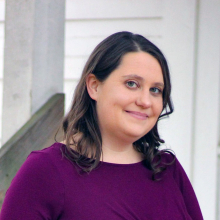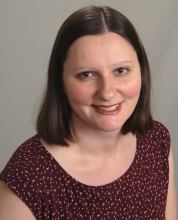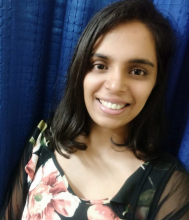Your golden ticket to the author, reviewer, and journal editor’s mind—experiences, stories, and more

What is common to every stage of the peer review process? People! Have you paused to think about what REALLY goes on in an author, peer reviewer, or journal editor’s mind while they are dealing with or managing the peer review process? How does peer review affect each of them? Are they able to empathize with each other? What would happen if we were to bring out the human side of peer review and look at the kind of emotions peer review evokes in people?
In this conversation, the speakers will openly talk about their feelings while dealing with peer review, what they expect from each other, and how empathy plays an important role in the process. By sharing their personal experiences, the speakers will highlight the personal, emotional, and HUMAN side of navigating the peer review process.
Join this session to become a more sensitive and empathetic author, reviewer, and editor.
Speakers
Erin Owens
Professor, Access Services Coordinator & Scholarly Communications Librarian, Newton Gresham Library, Sam Houston State University, Texas

Erin Owens is a Professor in the Newton Gresham Library at Sam Houston State University, where she has been a member of the faculty since 2007. As the Scholarly Communications Librarian, she provides outreach, education, and individualized assistance for researchers on her campus, from undergraduates through faculty, in almost all aspects of the scholarly research lifecycle. She has authored or co-authored more than a dozen peer-reviewed journal articles, presented at state and national conferences, and served as a reviewer for numerous journals in library and information science. She is currently a member of the Editorial Board for College & Research Libraries and an Associate Editor for Research Articles for Evidence Based Library and Information Practice. Her ORCID researcher profile can be viewed at http://orcid.org/0000-0001-9520-9314.
Adriana Bankston
Principal Legislative Analyst, University of California Federal Governmental Relations; Chief Executive Officer & Managing Publisher of the Journal of Science Policy & Governance

Dr. Adriana Bankston is a Principal Legislative Analyst at the University of California Office of Federal Governmental Relations in Washington, DC, where she serves as an advocate for the university with Congress, the Administration and federal agencies. Prior to this position, Adriana was a Policy & Advocacy Fellow at the Society for Neuroscience, where she provided staff support for special and on-going projects, including the society’s annual lobby event and the annual meeting. In addition to working at UC, Adriana is the Chief Executive Officer & Managing Publisher of the Journal of Science Policy & Governance, an internationally recognized non-profit organization and peer-reviewed publication dedicated to empowering early career scientists, engineers, and policy professionals in international science policy debate. She is also a Fellow with Advancing Research Impact in Society (ARIS), leading a project on developing the next generation workforce through science policy as a bridge between science and society. Finally, she is a Biomedical Workforce & Policy Research Investigator at the STEM Advocacy Institute, as well as a member of the Engaging Scientists and Engineers in Policy (ESEP) Coalition Steering Committee. Adriana earned her Ph.D. in Biochemistry, Cell and Developmental Biology from Emory University.
Andrea Hayward (Moderator)
Community Manager, Cactus Communications

Coming from an educational background in Psychology, Andrea has always been a passionate mental health advocate. As part of her current role at CACTUS, she has worked on several projects dedicated to researcher wellbeing and support, and is passionate about finding solutions that will improve the lives of researchers. She led the CACTUS Mental Health Survey, a global survey on mental health, fulfilment, and wellbeing in academia; and is now working on THINK Academia, a new CACTUS initiative against bullying in academia. Andrea hopes that insights from the CACTUS Mental Health Survey and related initiatives will spark more open discussions around researcher mental health and wellbeing, and trigger a much-needed change towards a more positive academic culture.
This content belongs to the Journal submission & peer review Stage



View Comments